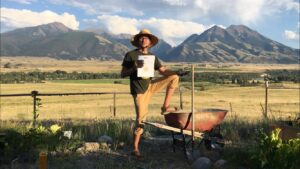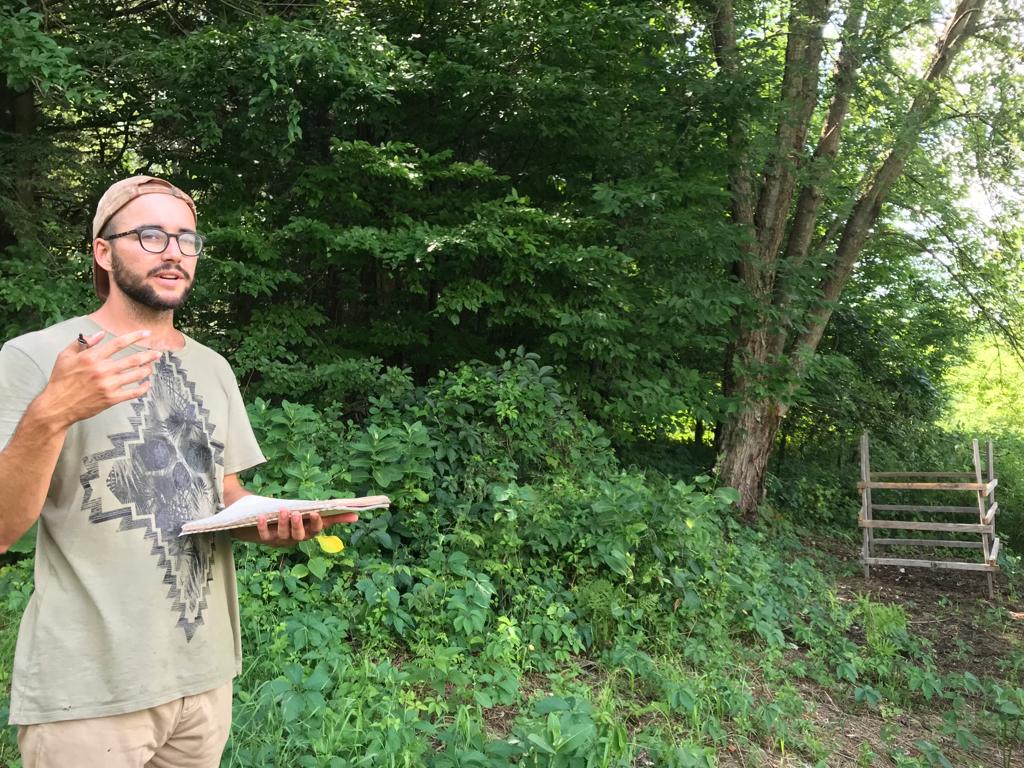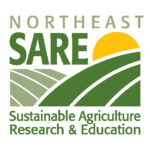Stay In Touch!
Sign up for occasional email updates about upcoming events, volunteer & job opportunities, farm happenings, and more.
There are myriad options for farmers to amend soil to support crops and soil ecosystems. Many farmers are starting to use “biofertilizer” products to enhance soil, essentially prepared mixtures of beneficial organisms. The market for these products is expected to be worth $1.94 billion by 2027 (Fortune Business Insights, 2020). But there are still significant challenges with commercial inoculants, mainly because their success depends on unique site conditions and competition with existing organisms (Bellows et al. 2020). This problem may not exist for organisms adapted (or “indigenous”) to a farm’s unique conditions. This research project provides a comparison of purchased and farm-produced soil amendments to begin to address this question. In this project, conducted at Unadilla Community Farm in 2022 and funded through Northeast SARE (Sustainable Agriculture Research and Education, Northeast United States), three soil amendment options are compared in terms of chemistry and biology. Specifically, the soil amendment Indigenous Microorganisms (IMO), a recipe for which is given in Korean Natural Farming, is compared to hot compost, municipal compost, and the mycorrhizal inoculant MycoGrow® Soluble (Fungi Perfecti, LLC). Chemical nutrient analysis, soil food web microscopy, and identification of plated bacteria and fungi cultures provide a general overview of each amendment’s properties and conditions. These properties are also compared at three stages of the IMO production process to better understand the biological dynamics of IMO production. Labor and costs for each of the three amendments are also compared to assist farmer decision-making. Wheat bran-derived IMO is compared to the traditional use of rice bran in order to adapt the Korean methodology to the Northeastern US.
A big thank you to all of the interns who participated in this research throughout the 2022 season, from turning the IMO and compost piles to collecting samples for the lab, and more!
The full report on our findings is available below.
In February 2023, an article titled “Can Korean Natural Farming Be Adapted to the Northeastern US?” was published in Issue 48 of Garden Culture Magazine.

Matt Bedeaux is Unadilla Community Farm's 2022 Research Fellow. Matt is a 2021 alumnus of the farm’s internship. Born and raised in the Sandia Mountains of central New Mexico, he graduated in 2020 from the University of Colorado with a degree in Chemical Engineering. He also has strong backgrounds in public speaking, philosophy, high school and collegiate teaching, and academic research (including an undergraduate publication on alternative cement chemistry). Matt has maintained a deep commitment to learning about sustainability since high school. After spending time at a farm in Montana he decided to study permaculture with dreams of farming. His hobbies include hiking, disc golf, guitar, reading, yoga, meditation, and the occasional chess game.

 This material is based upon work supported by the National Institute of Food and Agriculture, U.S. Department of Agriculture, through the Northeast Sustainable Agriculture Research and Education program under
subaward number FNE22-001. Any opinions, findings, conclusions, or recommendations expressed in this publication are those of the author(s) and do not necessarily reflect the view of the U.S. Department of
Agriculture.
This material is based upon work supported by the National Institute of Food and Agriculture, U.S. Department of Agriculture, through the Northeast Sustainable Agriculture Research and Education program under
subaward number FNE22-001. Any opinions, findings, conclusions, or recommendations expressed in this publication are those of the author(s) and do not necessarily reflect the view of the U.S. Department of
Agriculture. Sign up for occasional email updates about upcoming events, volunteer & job opportunities, farm happenings, and more.